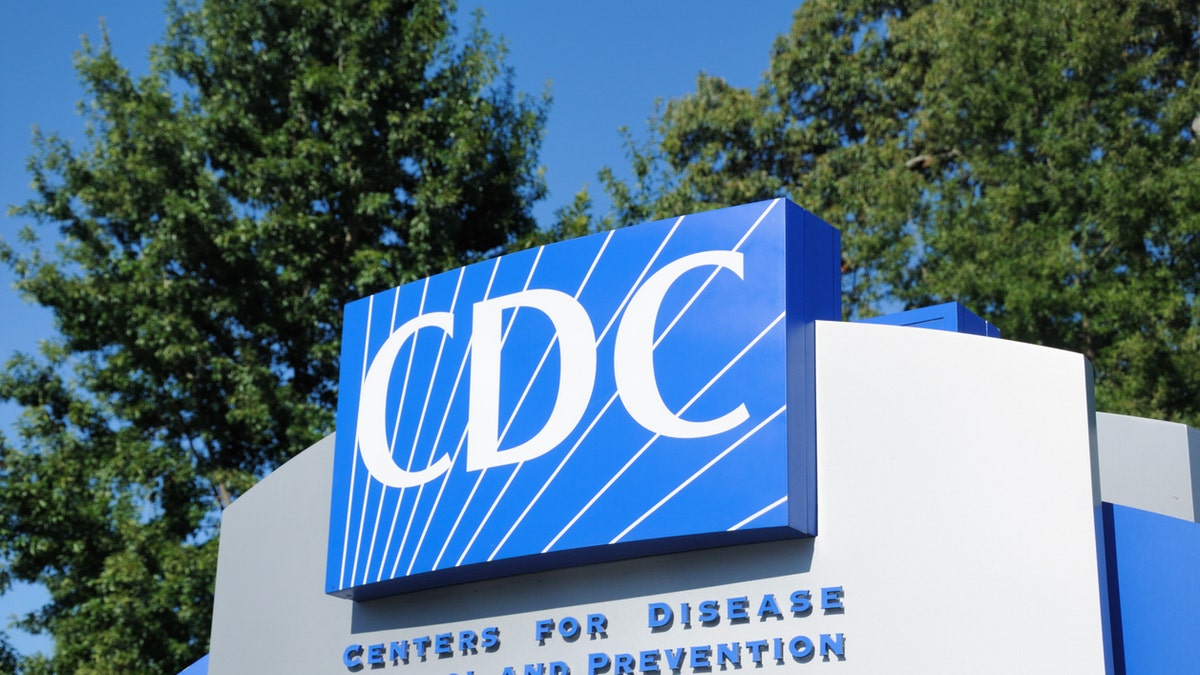Fox News Flash top headlines for May 26
Fox News Flash top headlines are here. Check out what's clicking on Foxnews.com.
Millions of people who were diagnosed with COVID-19 are still suffering with lingering symptoms.
The Centers for Disease Control and Prevention (CDC) is working to piece together a complete picture of long COVID, the syndrome of conditions that persists after having COVID-19, but a complete understanding still remains elusive.
"A growing number of persons previously infected with SARS-CoV-2, the virus that causes COVID-19, have reported persistent symptoms, or the onset of long-term symptoms, ≥4 weeks after acute COVID-19; these symptoms are commonly referred to as post-COVID conditions, or long COVID," the CDC said in a recent Morbidity and Mortality Weekly Report (MMWR).

iStock (iStock)
The report added COVID-19 survivors have twice the risk for developing a clot in the lung, otherwise known as a pulmonary embolism, or other lung problems. And among those who survived COVID-19, one in five between 18 and 64 years old and one in four who are 65 years and older experienced at least one condition that might be attributable to a previous COVID-19 infection.
The agency organizes the symptoms of the condition in several categories, including general symptoms, such as fatigue, respiratory symptoms, such as shortness of breath, heart symptoms such as chest pain or heart beating fast, and neurological symptoms, including what is referred to as "brain fog."
"Some people with post-COVID conditions have symptoms that are not explained by tests," the CDC said. "People with post-COVID conditions may experience health problems from different types and combinations of symptoms happening over different lengths of time."
Anyone who’s had COVID-19 can experience the condition, with a recent analysis of private insurance claims finding over 75% of long COVID patients were not hospitalized for their initial illness. The researchers looked at data from the first four months after a special diagnostic code was created for the condition last year.

Atlanta, Georgia, USA - August 28, 2011: Close up of entrance sign for Centers for Disease Control and Prevention. Sign located near the 1700 block of Clifton Road in Atlanta, Georgia, on the Emory University campus. Vertical composition. (iStock)
Estimates vary of the proportion who develop long COVID-19, but approximately 13% develop the syndrome after one month of initial infection, 2.5% develop the condition at three months based on self-reporting, and more than 30% among those hospitalized develop long COVID-19 symptoms at 6 months, per the CDC.
Some people are more at risk for long COVID, including those who experienced severe COVID-19 illness, those with chronic medical problems prior to having COVID-19, those not vaccinated against COVID-19 and those affected by health inequities, such as certain racial and ethnic minority groups and people with disabilities, per the CDC.
The United Kingdom’s Health Security Agency, however, analyzed eight studies that researched the impact of vaccines on long COVID and found two out of the eight had inconclusive evidence that vaccination reduced risk of developing long COVID, per their briefing.
Another study of 209 patients in Cell suggests high levels of the coronavirus in the bloodstream early in the infection as well as the presence of specific antibodies that accidently attack our own tissues, known as autoantibodies, can increase the risk of long COVID.
COVID, MENTAL HEALTH AND SCHOOLS: OUR KIDS ARE SUFFERING AND IT'S NOT ALL RIGHT
The study also found the virus well known to cause mononucleosis in most people during childhood, known as Epstein-Barr virus, which usually stays dormant after the initial infection, is another possible risk factor by reactivating in adulthood in those who have long COVID.
The exact cause of long COVID is unknown, but some research suggests an overactive immune response to the initial infection may result in long COVID symptoms, said Dr. Michael Peluso, an infectious disease physician at the University of California, San Francisco.
"We know that during acute COVID-19, some people have a really revved-up immune response and some people have a reduced immune response, and that response can determine the trajectory of how well somebody does," he said.
Some research suggests approximately 60% of all long COVID patients affected are female, consistent with other long-term conditions with similar symptoms, such as chronic fatigue syndrome, per the Times.
Recent research suggests long COVID peaks around middle age, with a recent Northwestern study on the first 100 patients treated for neurological symptoms at a post-COVID-19 clinic found the peak age of the condition at age 43.
There is no single test to diagnose long COVID-19, but the CDC notes a health care provider should consider the diagnosis based on a patient’s history, including a COVID-19 diagnosis by a positive test or by symptoms or exposure, combined with a physical exam.
But some will also develop new health problems after the initial illness, the agency noted.

Ill young man in bed, covered with a light gray blanket, surrounded by used tissues
A recent Scottish study published in Nature Medicine found one in eight hospitalized patients with COVID-19 between May 2020 and March 2021 were later diagnosed with myocarditis, or heart inflammation, while damage to the other organs, such as the kidneys, was also common.
"COVID-19 is a multi-system disease, and our study shows that injury on the heart, lungs and kidneys can be seen after initial [hospitalization] in scans and blood tests," said Colin Berry, lead investigator of the study and professor of cardiology and imaging at the University of Glasgow.
CLICK HERE TO GET THE FOX NEWS APP
"The best way to prevent post-COVID conditions is to protect yourself and others from becoming infected. For people who are eligible, getting vaccinated and staying up to date with vaccines against COVID-19 can help prevent COVID-19 infection and protect against severe illness," the CDC said.
If you have long COVID, click here if you are eligible to participate in the National Institute of Health’s RECOVER study.










































